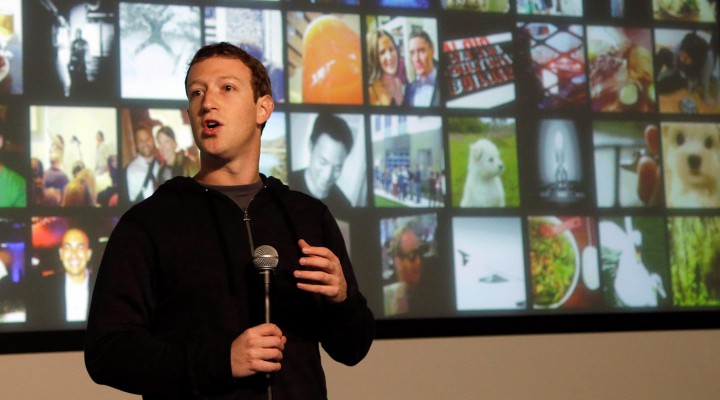Amnesty International: Facebook Plan To Target Children “Incompatible With Human Rights”

Facebook itself “poses one of the biggest threats when it comes to children’s privacy,” according to the human rights organization.
MPN- Facebook has let slip that it is launching an Instagram service for children under 13 years old, who are currently legally barred from using the platform. On Thursday, Instagram’s vice president of product told employees in a leaked communication that this was indeed the plan. Instagram’s boss, Adam Mosseri, confirmed the leak’s veracity to Buzzfeed News, telling them that his goal was to create a transparent and kid-friendly version of the popular photo-sharing app for children and pre-teens.
Apart from the safety questions that arise in building an online platform for millions of children, the Silicon Valley company’s decision has been condemned by many as extremely worrying.
“Incompatible with human rights”
“Facebook’s very business model is built on ubiquitous and constant surveillance – which is entirely incompatible with human rights. By making users sign up to the opaque terms and conditions of Instagram, Facebook will be able to harvest huge amounts of data about children and create invasive, granular profiles that can last the rest of their lives,” said Amnesty International in a statement, presenting Facebook’s plan as akin to foxes offering to guard the henhouse. Facebook itself “poses one of the biggest threats when it comes to children’s privacy,” the human rights organization added, claiming that children would inevitably be bombarded with targeted advertising, disinformation and incendiary content that is ubiquitous on its other platforms.
Social Media Microtargeting and the Evolving Ministry of Truth
Other experts characterized the move as one that would normalize the idea that social connections exist to be monetized and legitimize the gathering of data on minors. Social media companies’ algorithms are expressly designed to keep users hooked and scrolling for more content. But an increasing body of research suggests that staring at a screen has negative health consequences, especially for children.
One study found that kids who were forced to cut back on screen time lost weight, slept better, and were less aggressive. The World Health Organization recommends no screen time whatsoever for those under three, while others want that age to be raised to at least seven and screen time to be limited for those under 12 years of age.
Facebook has made headlines of late thanks to some highly contentious privacy protocols. In January, it gave its two billion WhatsApp users an ultimatum: accept its new privacy rules which were rumored to allow it to share user data with Facebook and others, or lose the service. The debacle caused an estimated 7.5 million people to switch over to more privacy-oriented Signal (although, as journalist Yascha Levine notes, Signal’s ties to the U.S. government make its claims of total privacy highly suspect).
Facebook has also been pushing facial recognition software that it consistently misled users about, resulting in a $5 billion fine from the Federal Trade Commission. Last year, it also agreed to pay $550 million after illegally collecting Illinois residents’ facial and biometric data. Big tech companies are already colluding with the government and sharing (or selling) their users’ data. Microsoft defended the practice, going so far as to claim it would be “cruel” to stop government agencies using the new technology.
The Facebook empire
From launching in 2004 as a small social network service for students at Harvard University, Facebook has grown into a sprawling empire, consisting of apps like Instagram (bought in 2012 for $1 billion) and messaging services like WhatsApp (bought in 2014 for $19 billion). It is also the largest single news service in the world. Almost half the adult-aged planet uses Facebook, with their feeds filled with news stories the company has curated — with help from the NATO cutout organization the Atlantic Council. Its marketplace is an enormous commerce hub, while Facebook also owns a huge advertising empire, using users’ data to rake in over $84 billion in revenues from targeted ads in 2020. The company’s CEO Mark Zuckerberg is the seventh richest individual in the world, as per Forbes’ billionaire list.
Because of its economic and social influence, Facebook is also a very powerful political actor. In late 2019, it blocked the New York Post from sharing a story about Joe Biden’s corruption and later banned Trump from its platform. This cannot be because of genuine concern over a rising far right, as Facebook aided the neo-fascist Alternative für Deutschland (AFD) in 2017. The AFD met with American marketers at Facebook’s headquarters in Berlin, the company providing them extensive details about German voters, and allowing the AFD to micro-target German voters with ads, helping them win 94 seats in the German parliament — the far-right’s best electoral showing since the 1930s.
Ultimately, unless the government steps in, NGOs are powerless to prevent the increasing digitization of children’s lives. It appears Facebook is hellbent on hooking kids on its services, no matter what Amnesty International says.
Amnesty International: Facebook Plan To Target Children “Incompatible With Human Rights”
Feature photo | Mark Zuckerberg speaks at Facebook headquarters in Menlo Park, Calif. Jeff Chiu | AP
 TheAltWorld
TheAltWorld 
0 thoughts on “Amnesty International: Facebook Plan To Target Children “Incompatible With Human Rights””